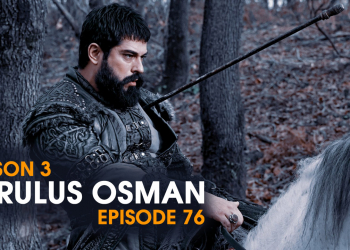INTRODUCTION:
▉ These lines have been taken from the play “The Bear” composed by “Anton Chekhove”.
Setting: The play is ground-breaking sham. The author has uncovered the primitive attitude through a magnificent satire. Popova, the courageous woman, is a lovely youthful widow. She is in profound grieving for her significant other who kicked the bucket seven months prior. She needs to show the world how dependable a spouse she is.
▉ She has quieted herself down in her thicket will not see guests. Smirnov, a moderately aged landowner, approaches her for recuperation of an advance taken by her better half. She attempts to put him off. He demands to see her. So she needs to see him. He requests his cash. She guides him to come day after tomorrow. Unpleasant fights follows.
▉ During the fight Smirnov recommends that she ought to wed as opposed to squandering her life away for her backstabbing spouse. Popova gives in light of the fact that she doesn’t prefer to lose such a decent offer.
QUESTIONS (Q.1) Prove the play a ridiculous parody depicting the conduct of the primitive?
Answer: Anton Chekhove was a producer as well as an extraordinary short story author. The present play “The Bear” is a joke, brimming with fun, wrath and uproarious loud giggling. The play spins around two primary characters and the conduct of the characters is strange, interesting, and wistful.
▉ Popova‟ s spouse has passed on and she has cut herself off from society.
She has shut herself in the four dividers of her home and is driving a totally separated life when the play opens, Luka, her worker, is seen encouraging her to participate in the exercises of life. She reports that since the demise of her significant other, life has lost all its importance for her. Through their discussion, we come to realize that Popova‟ s late spouse had not been a decent individual.
▉ He had not treated Popova well. Still Popova is twisted after indicating the spirit of the dead spouse how devoted she is. So she censures Luka for encouraging her to look into life, as it‟ s an expression: “There are ladies who love their spouses as indiscriminately, as energetically and as mysteriously as nuns their group.” The author has uncovered the medieval attitude through a great satire. Smirnov, a moderately aged landowner, approaches Popova for the recuperation of an advance taken by her better half. The worker, Luka, brings the message. She will not concede Smirnov.
▉ Be that as it may, he demands seeing her. So she needs to see him. Smirnov requests his cash. She instructs him to come day after tomorrow. Smirnov says he won’t go out without cash. He would prefer to remain in the house till the day after tomorrow.
▉ A harsh squabble follows. During the squabble Smirnov recommends that she ought to wed as opposed to squandering her life away for her barbarous, backstabbing spouse. He squeezes this point home and prevails with regards to convincing her to wed him. Popova gives in on the grounds that she doesn’t prefer to lose such a decent offer.
▉ The play is a magnificent parody on utilitarian profound quality also. Smirnov weds Popova for her riches and status. She also observes her own bit of leeway. Smirnov isn’t just a good humored individual yet in addition a proprietor.
▉ It is in this manner an equivalent can foresee them two. Aside from this genuine subject the play is astounding for its eminent cleverness of discourse and circumstance. So the play is a decent sham and has absurd circumstance.
(Q.2) Draw lady nature examining Popova‟s character.
Answer: Popova is a rich youthful widow of medieval class.She is genuine agent of her group. She is stupid, pointless and narrow minded. She wants to flaunt even in distress. She wishes to be respected as a reliable spouse. That is the reason she appears to pay attention to her husband‟ s demise. She is deceiver since she doesn’t adore her significant other to such an extent as she imagines.
▉ She is a chatty woman and it is through her ceaseless talk that we can figure that more often than not she is lying and is, in truth very unfaithful and devious. She says: “I will be valid till death and give him how I can adore.” Smirnov, a companion of her significant other, has come to gather his bill yet she can’t and says that she will cover the tab, the day after tomorrow.
Smirnov requests that her compensation right away. So they choose to battle a duel with one another. Be that as it may, she doesn’t have the foggiest idea how to discharge a shot, and says to Smirnov:
▉ “Before we battle you should know to shoot. I have never grasped a gun previously.” Smirnov who is as flawless a shot as one who, ” Can get a projectile through a coin hurled into the air as it descends” Smirnov advises her and then again he himself proclaims that he is “going to discharge noticeable all around” on the grounds that “its‟ my undertaking”. Then the ill humored Smirnov experiences passionate feelings for Popova.
▉ He stoops before her and says: “I love you as I have never adored! I have rejected twelve lady, nine have denied me, yet I never adored one of them as I love you.” from the get go she shows disdain towards him. He finds a good pace goes to the entryway yet she stops him. “No, stop … No … leave, leave I detest you”, “truly, yes leave”. Out of nowhere we see popova bringing down her eyes and they grasp each other most enthusiastically.
▉ Through the character of Popova, the author has depicted and demonstrated the idea of lady. Like women of her group Popova is extremely passionate. She flies into a fury at whatever point something occurs against her craving. She can’t stand rebellion.
▉ Popova has no character. She is frequently in struggle with herself. For example she pledges never to overlook her significant other, and yet she concedes that he was bad spouse. Popova effectively succumbs to allurement. So she acknowledges









